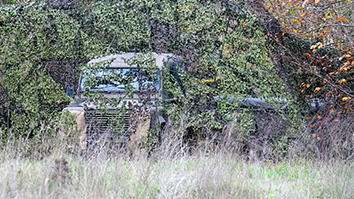Education Research Associate, SRI Education
Morgan Solender is an education research associate who contributes to the research and evaluation of policies and programs in digital learning, early childhood learning and development, teaching quality, disability and inclusion, and literacy and language arts. Solender is experienced in project management, data collection, quantitative data analysis, coding and database management. Current projects at SRI include the evaluations of Amira Multigenerational Literacy and Kasi Learning Systems, and several internal research and development projects related to the use of artificial intelligence in education.
Before joining SRI, Solender was the director of middle school academics at CitySquash, a nonprofit enrichment program for youth from households with low incomes in the Bronx, New York. At CitySquash, she developed, scheduled, and supervised all aspects of the middle school academics program. Solender has also worked as a research assistant for the Human Flourishing Program, a data analyst for the Harvard Graduate School of Education’s Career Development Center and a graduate assistant at Harvard University’s Strategic Data Project.
Solender holds a MEd in education policy and analysis from the Harvard Graduate School of Education and a BA in educational studies and psychology from Washington University in St. Louis.



